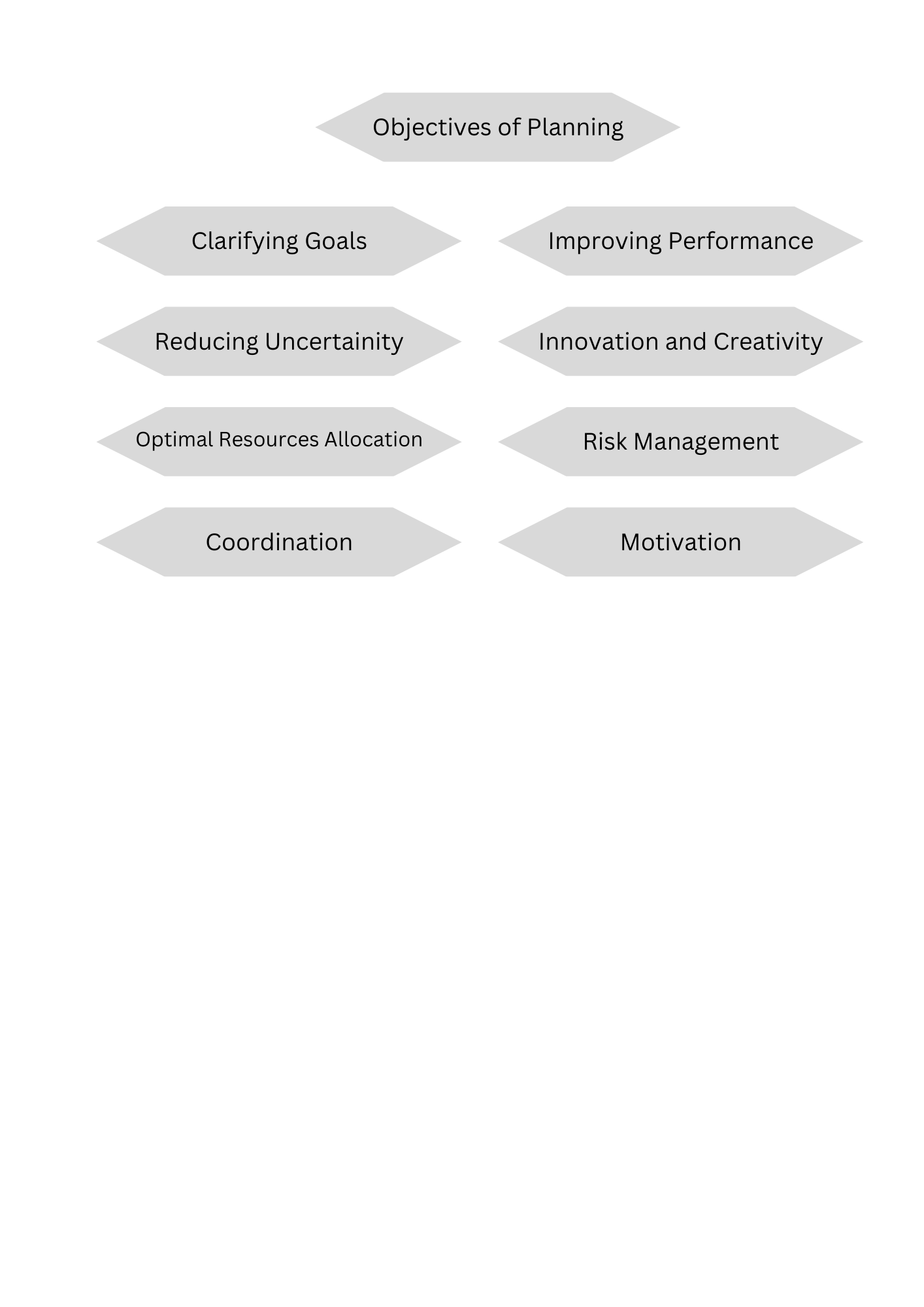Planning in Management:
Concept of Planning: Planning is a fundamental function of management that involves setting objectives, determining the course of action, and developing strategies to achieve organizational goals. It is a systematic process of thinking ahead, anticipating future events, and making decisions to guide the organization toward its desired outcomes. Planning provides a roadmap for the organization, helping to allocate resources efficiently, minimize uncertainties, and improve the likelihood of success.
Objectives of Planning:
- Clarifying Goals: Planning helps in clarifying the goals and objectives of the organization. It provides a clear sense of direction for everyone involved.
- Reducing Uncertainty: The future is uncertain, but planning allows organizations to anticipate and prepare for possible future scenarios, reducing the impact of uncertainties.
- Optimal Resource Allocation: Through planning, organizations can allocate resources, such as human, financial, and material, in an optimal and efficient manner to achieve objectives.
- Coordination: Planning facilitates coordination among different departments and individuals within an organization. It ensures that everyone is working towards common goals.
- Improving Performance: Planning sets performance standards and benchmarks, providing a basis for monitoring and evaluating actual performance against planned objectives.
- Innovation and Creativity: Planning encourages organizations to think innovatively and creatively. It involves considering new ideas and approaches to achieve goals.
- Risk Management: Planning involves identifying potential risks and developing strategies to manage or mitigate those risks. This contributes to the organization’s resilience.
- Motivation: Well-defined plans can motivate employees by providing a sense of purpose and direction. Employees are more likely to be engaged when they understand the organization’s goals and how their work contributes to them.
Nature of Planning:
- Dynamic Process: Planning is a dynamic and ongoing process. It is not a one-time activity but requires constant review and adjustment as circumstances change.
- Pervasive Function: Planning is applicable at all levels of an organization, from top management to front-line employees. Each level engages in planning activities that align with its scope of responsibilities.
- Goal-Oriented: The primary focus of planning is to establish goals and objectives. All planning activities are directed toward achieving specific outcomes.
- Intellectual Activity: Planning involves thinking, analysis, and intellectual engagement. It requires a thorough understanding of the organization, its environment, and the factors that may impact its success.
- Futuristic: Planning is future-oriented. It involves envisioning the future state of the organization, anticipating challenges, and devising strategies to address them.
- Flexible: Plans need to be adaptable to changing circumstances. Flexibility is crucial to adjusting strategies in response to unforeseen events or shifts in the business environment.
- Continuous Process: Planning is not a one-off event; it is a continuous process. Plans are regularly reviewed, revised, and adapted based on feedback and changing conditions.
- Involvement of People: Effective planning involves the participation of individuals at various levels of the organization. It is not solely the responsibility of top management but requires input and commitment from all stakeholders.
